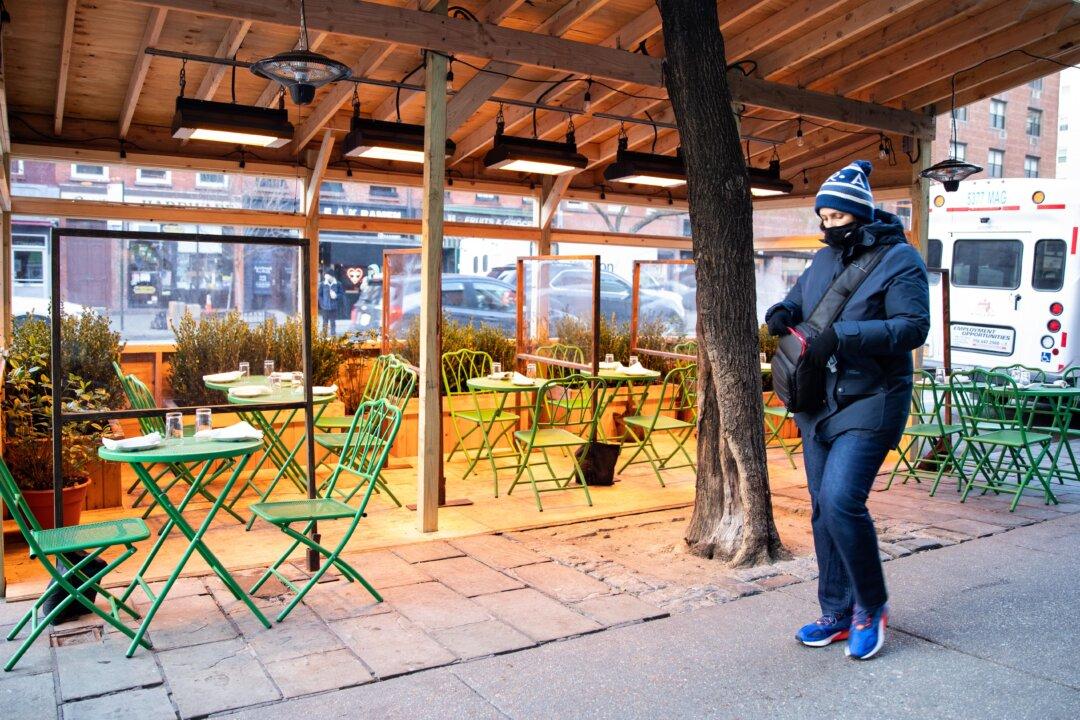The New York City Council held a hearing on Feb. 8 on whether to make outdoor sidewalk dining, which was a temporary measure during the CCP (Chinese Communist Party) virus pandemic, a permanent fixture in the city’s dining scene.
Outdoor dining sheds were built by many NYC restaurant owners to help blunt the economic impact of the virus as they struggled to survive the government-mandated lockdowns.





